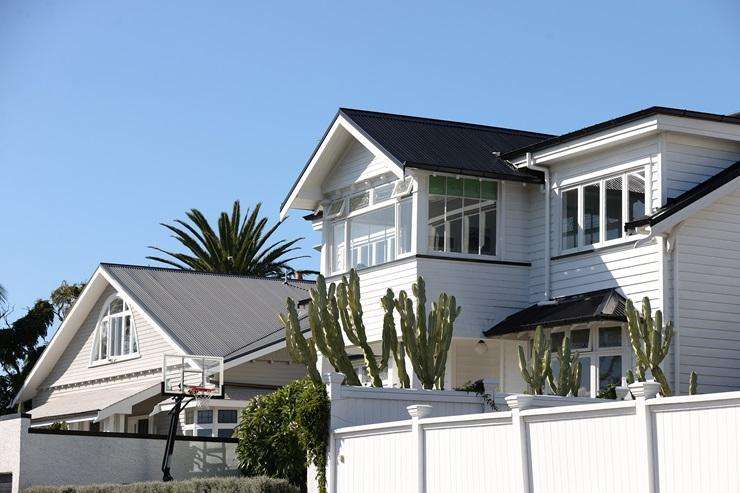– Expected changes to the foreign buyer ban will allow ultra-rich investors to purchase high-value properties.
– The legislation, linked to the “Golden Visa” scheme, requires a minimum $5m investment in New Zealand.
– Experts say the changes will impact high-end properties but not affect the general housing market.
Expected changes to the foreign buyer ban are unlikely to trouble the vast majority of Kiwi homeowners, property experts claim, but questions remain about the mechanics of a scheme designed to encourage the ultra-rich to invest their money and business skills in New Zealand.
Since 2018, only citizens, tax residents and nationals from Australia and Singapore have been able to freely buy houses in New Zealand. By the end of this year, that could all change and Kiwis could be seeing more foreign purchases of residential properties.
Rumours that the Government was going to overturn the legislation introduced by the Labour-led Coalition in 2018 to take the heat out of the housing market have been swirling for more than a year now, but they came to a head on Monday on the Mike Hosking Breakfast radio show.
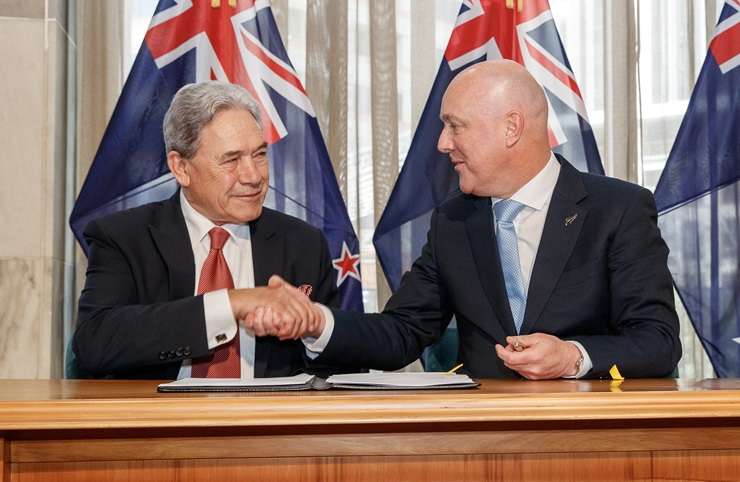
Prime Minister Christopher Luxon and NZ First leader Winston Peters after signing their coalition agreement. The pair have reached an agreement on loosening New Zealand’s foreign buyer rules. Photo / Mark Mitchell
Hosking asked Prime Minister Christopher Luxon point-blank if a deal had been done with his Coalition partners, New Zealand First and its leader, Winston Peters.
Luxon and the National Party had campaigned to scrap the ban, arguing in the lead-up to the 2023 election that tax cuts for Kiwis could be partially funded by taxing $2 million-plus property purchases by foreign buyers.
That pledge was dropped as part of the coalition agreement with New Zealand First. However, claims that Peters had changed his position started swirling as early as March 2024, when the then Deputy Prime Minister told Bloomberg he was open to relaxing the rules for ultra-high net worth foreigners who were looking to invest their money in New Zealand.
“If someone says I’m in and I’m here for $50, $60 million, I’m not going to stand around arguing about whether he can get a home or not. But he will not want a $2 million home of that I can be certain,” he said.
Discover more:
– Tony Alexander: What the latest OCR cut means for homeowners and house prices
– Has NZ finally solved its housing crisis? 10 years after soaring prices triggered nationwide panic
Nothing came of it, but the claims persisted, with high-end agents frequently relating to OneRoof that such-and-such politician had confidentially told them that a deal was in the works.
The Government’s “Golden Visa” legislation, which eased the rules around foreign investment in New Zealand and came into effect in April, gave new life to the rumours, and last week Finance Minister Nicola Willis told Bloomberg that the Government was poised to let foreigners with a “golden visa” buy New Zealand homes.
“Those talks have been underway and you would expect that a decision would be made by our cabinet in the coming weeks,” she said.
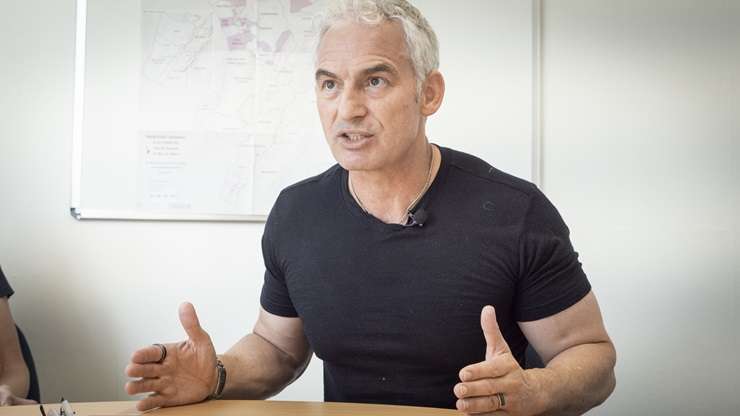
Former Labour minister Stuart Nash: “By and large, this doesn’t impact 99.9% of Kiwis at all.” Photo / Warren Buckland
Luxon on Newstalk ZB on Monday confirmed that a deal on the foreign buyer rules had been done, and that the legislation would be enacted this year.
While the exact details have not yet been released, it has been widely speculated that the change will be linked to the golden visa, or as it more formally known the Active Investor Visa Plus scheme.
The scheme is currently eligible to wealthy overseas people who are prepared to invest a minimum of $5 million in New Zealand. Under the current rules, they still can’t buy a house until they become a resident, but the Government has indicated this is about to change.
The long-awaited change, which is also expected to have rules dictating the value of the properties that can be bought, is being welcomed by real estate agents and those working to attract overseas investment in New Zealand’s flagging economy.
Former Labour minister Stuart Nash, whose firm Nash Kelly Global help high net worth foreigners navigate the “golden visa” rules, said he had four potential investors walk away in the last month because of the foreign buyer ban.
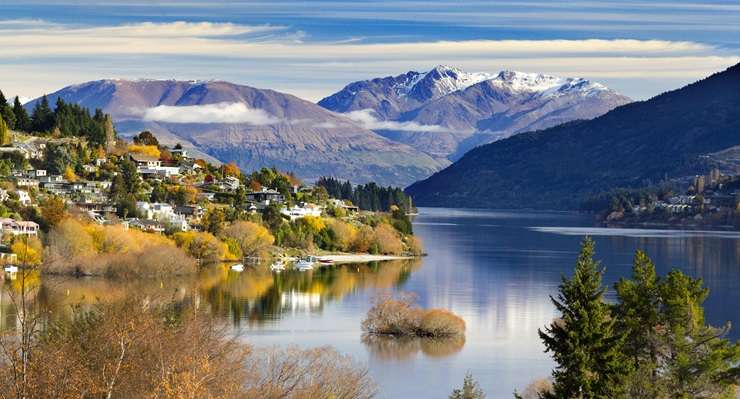
High-end homes in Queenstown-Lakes are likely to attract the attention of foreign buyers if restrictions are lifted. Photo / Getty Images
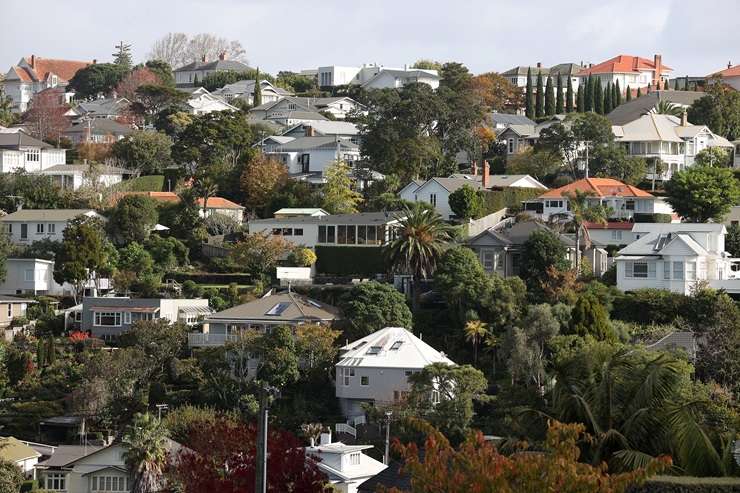
Remuera, in Auckland, has the most $5m-plus homes in the country. Photo / Fiona Goodall
“They have said the reason they will not come into New Zealand under AIP is because they could not buy property. If they could buy property, then they would invest.”
Nash predicted the Government would make an exemption for Active Investor Plus Visa holders, which would likely allow people willing to invest over $5m to buy a New Zealand house worth $5m or more.
Nash said such a price threshold would minimise any impact on house prices. “Bearing in mind these are not the people who compete with first-home buyers or second-home buyers; these are the people who compete with the Lotto winners,” he told OneRoof.
“It may have an impact on high-end properties in Queenstown, it may have an impact on those special boutique properties that exist in places like Omaha or the northern slopes of Herne Bay or those one-off properties dotted up north, but by and large, this doesn’t impact 99.9% of Kiwis at all.”

Buying Queenstown managing director Jo Eddington says overseas investors “bring so much more than capital. They bring intellectual property, global networks, philanthropy and energy.” Photo / Supplied
New Zealand Sotheby’s International Realty managing director Mark Harris agreed with Nash that any changes were unlikely to affect the general housing market. “I don’t think it’s going to be an open-door policy where everyone is welcome to come and have a holiday home even if it does have a price hurdle.”
He expected the price threshold to be somewhere between $3m and $5m, meaning the number of people who could then buy would be “hundreds, not thousands”.
“I don’t think it’s going to make an immediate impact on price, but time will tell over the next year or two and whether the rule is simplified further.”
Harris said the announcement this week was a positive first step, and he hoped to see the foreign buyer rules loosened further.
Bayleys Canterbury general manager Rachel Dovey said the current investment rules didn’t make sense. “It seems quite weird when we are happy to take $5m, $10m to invest in a factory or a farm or whatever, but you can’t buy your own house.”
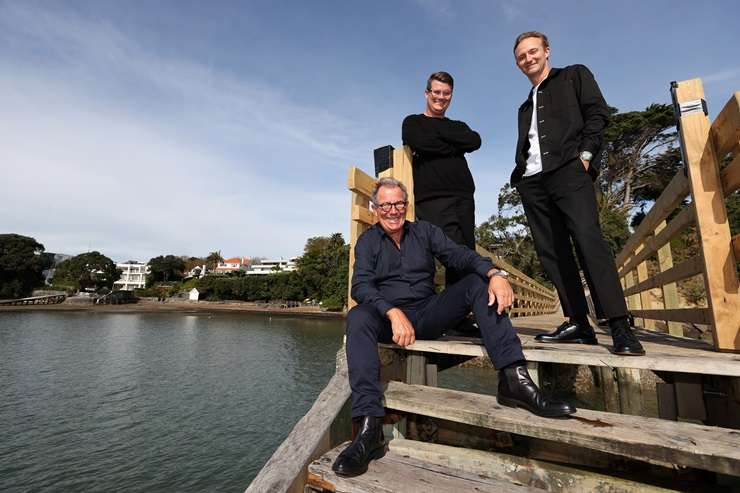
Wall Real Estate agents Graham, Andrew and Ollie Wall. Ollie told OneRoof that change is needed. Photo / Fiona Goodall
Dovey said it would help open up the buyer pool at the upper end of the market, which she believed was good for clients, but was unlikely to have a major impact on house prices in her region.
“There’s a reasonable number of houses around $2m, but when you get to the higher end, there’s not that many [in Canterbury] compared to other regional centres.”
Jo Eddington, principal agent and owner of Buying Queenstown, which finds luxury homes for wealthy buyers, said recent changes to New Zealand’s investment rules had been a “major step forward” and encouraged hundreds of people to apply for the “golden visa”.
However, under the current rules, visa holders had to wait up to three years and spend almost half their time living in New Zealand to be eligible to buy residential property in New Zealand. Eddington said this was not always realistic for someone running a global business, but these were the types of people New Zealand needed.
“They bring so much more than capital. They bring intellectual property, global networks, philanthropy and energy. They contribute to communities, invest in enterprises, and support local initiatives. If we make it possible for them to live here – as well as invest here, in my opinion NZ wins, not just in real estate, but in talent, innovation, and community growth,” she said.
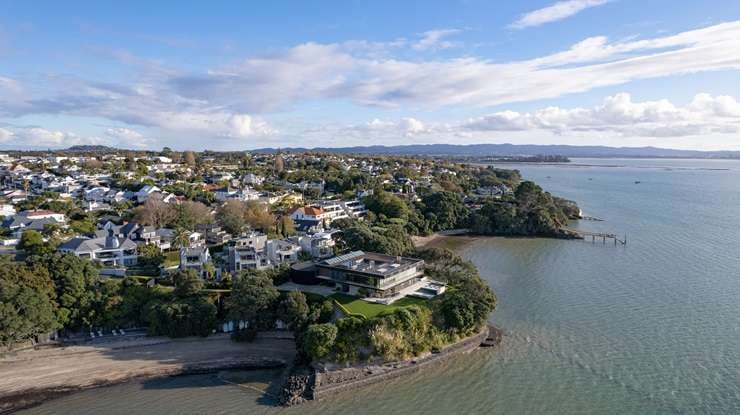
Prices in waterfront Herne Bay may jump as a result of the expected changes, and there may be a rush to sell once the ban is loosened. Photo / Chris Tarpey
Wall Real Estate partner Ollie Wall, who sells homes in Auckland’s richest suburbs, said foreign buyers were not only welcome but needed. “When the ban came in, we went from trading on a world market to operating in one of the smallest markets in the world,” he told OneRoof.
Wall said that allowing foreign buyers to purchase high-end homes would encourage sellers to list on the open market and give the housing market a much-needed boost.
“There are actually plenty of local buyers, but the dynamic is such that they are in no rush to decide or don’t know what’s out there for sale. Bringing in foreign buyers will give buyers the confidence to move, but also give sellers the confidence to go on the market and get on with their lives. People are in a holding pattern at the moment.”
Oliver Road managing director Cam Winter, whose agency sells luxury homes in Queenstown and the Bay of Plenty, agreed. He said there were already buyers in New Zealand, Australia and Singapore looking for properties priced between $5m and $15m, but they did not seem to be in a hurry. The possibility of competition from foreign buyers might be the push they needed to buy.
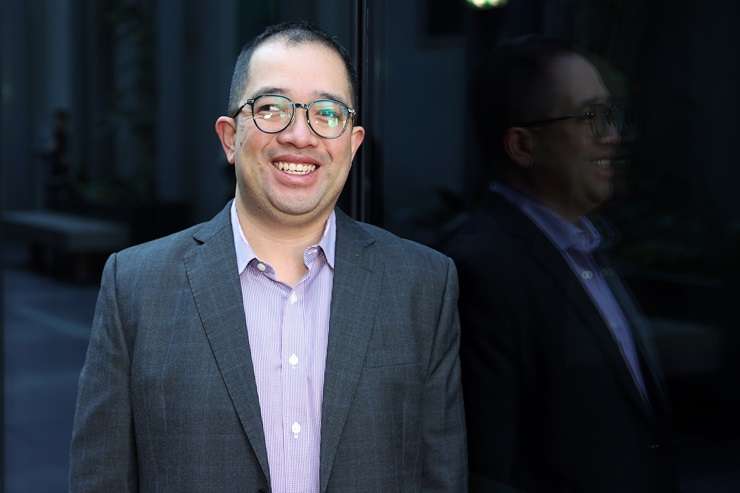
Valocity senior research analyst Wayne Shum believes there are still too many unknowns to know what impact a change might have. Photo / Fiona Goodall
Like the other agents interviewed, Winter believed a threshold around the value of properties foreign buyers could buy should be introduced.
However, he thought putting a fixed dollar value, such as $5m-plus, across the country was “flawed” and felt that a broader set of criteria where only properties in the upper quartile of each market could be bought by overseas buyers made more sense.
Winter’s point will need to be addressed by the Government, which will be looking for investment and job growth across the country. Research by OneRoof’s data partner, Valocity, highlights the challenges with a threshold approach.
Across the country, there are just under 10,000 residential / lifestyle properties worth $5m and above, around 7000 of which can be considered ready-to-live-in homes. The vast majority of these homes are in Auckland and Queenstown-Lakes. Of the 31 suburbs with more than 50 homes in the higher price range, just three are outside Auckland and Queenstown-Lakes: Mount Maunganui, in Tauranga (204); Whangamata, in Thames-Coromandel (89); and Merivale, in Christchurch (54).
“All the suburbs are where you’d expect them to be and highlight just how popular the coast is in New Zealand. Most of the suburbs on the list are within touching distance of water,” Valocity senior research analyst Wayne Shum said.
The suburb with by far the greatest concentration of $5m-plus homes is Remuera, in Auckland. The Valocity research identified 1056 high-value houses in the wealthy inner-city enclave, more than 700 than the suburb with the next highest tally, neighbouring Parnell. Both these suburbs are prized by upper-end buyers for the luxury homes they offer, but they are also a magnet for Aucklanders looking to get their children into two of the country’s top schools, Auckland Grammar and Epsom Girls Grammar.
Shum said opting for an upper-quartile approach could also be challenging and would require a lot of monitoring. He noted that there were still too many unknowns to know what impact a change might have. For example, would the new rules allow foreign buyers to buy a section and build, or to purchase a farm or a vineyard?
What is likely is that owners of more expensive properties might choose to hold off from listing until the law changes. “If you were selling a $20m house in Auckland right now, you would have only a handful of buyers who could purchase your home. In six months, when the policy is more certain, you might have a bigger pool of buyers and potentially a bigger price.”
Has New Zealand’s attitude to foreign buyers changed? In the lead-up to the ban, housing affordability was viewed as a key concern for New Zealanders, with the rapid climb in prices in Auckland after 2011 partially blamed on overseas buyers paying more than market value for homes. In 2015, Labour released figures that it claimed showed 40% of Auckland houses sold between February and April of that year were purchased by people with surnames it had identified as Chinese.
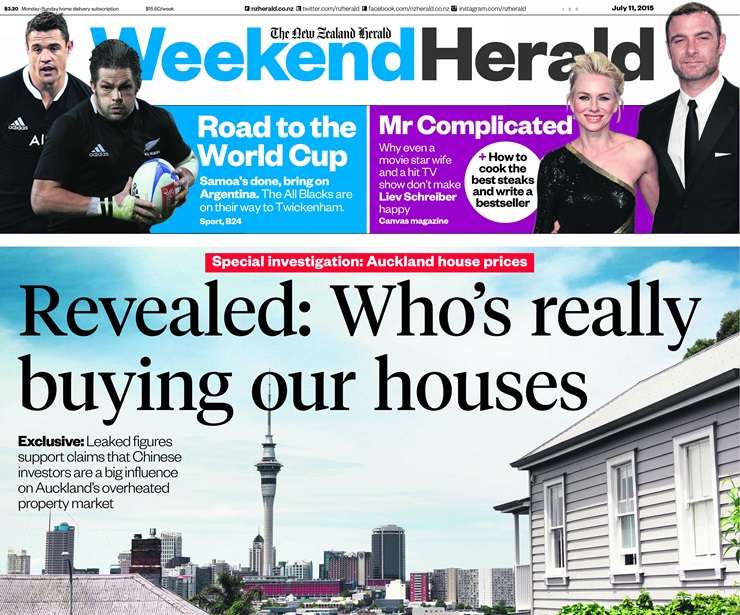
The front page of the Weekend Herald in July 2015 when the data highlighting buyers with “Chinese” names was released by Labour. Photo / Supplied
The claims were criticised at the time, with Auckland economist Shamubeel Eaqub telling media that the data was “half-baked” and the conclusions were borderline racist, and accused Labour of using foreign buyers as a “scapegoat” for rising house prices.
The then race relations commissioner, Dame Susan Devoy, said: “Chinese New Zealanders deserve better than this, and so does anyone keen on actually solving this issue.”
However, two years later, Labour, in coalition with New Zealand First and Winston Peters, introduced the foreign buyer ban, with Prime Minister Jacinda Ardern telling the country: “This Government places a high priority on home ownership and housing affordability. We stand strongly in favour of the view that housing is a right.”
Figures from Stats NZ showed that home transfers to people who didn’t hold New Zealand citizenship or a resident visa fell by more than 80% immediately after the Government passed its amendment to the Overseas Investment Act, from 3% in the March 2018 quarter to 0.6% in the March 2019 quarter, with foreign buyers remaining a marginal presence in the market since the ban came into effect.
What has changed, at least in the last three years, is the direction of the housing market. Nationwide property values have dropped 12% since the market peak in 2021-2022 and have enjoyed little growth in the last two years. The only market to show growth is Queenstown-Lakes, with the district’s average property value up almost 12% on two years ago.
Eaqub told OneRoof that right now, the changes did not seem like a big deal for Kiwis because house prices were not rising. “But when prices rise, I think that ugly head of intolerance towards foreign buyers will return,” he said.
He noted that when the foreign buyer ban was first introduced, there was not a lot of evidence that foreign buyers were a big part of the housing market, and even when they disappeared, house prices still rose (OneRoof figures show the nationwide average property value has risen 35% since the ban was introduced).
“It’s not as if the exclusion of foreign buyers somehow made houses more affordable in New Zealand,” he said.
“Where this current conversation is going is very much aimed at the top end of the housing market – very expensive homes. And so I think for a lot of New Zealanders they are like, ‘Well, that is not a home I can afford anyway’.”
Nash, who was in Cabinet when the foreign buyer ban was introduced, still stands by it. “I think we did the right thing because people were buying New Zealand homes for the wrong reasons. They weren’t buying them to tenant them and provide houses to those who can’t afford them, they were buying them, leaving them empty and counting on a tax-free capital gain.”
Nash said the exemption regime would not detract from the ban and would simply allow a very few individuals who have chosen New Zealand to actively invest a substantial part of their wealth.
“We may be talking 200 or 300 people, maybe more over time … In the scheme of things, it’s very few, and you will also find that a number of these will also be building houses as well.”

